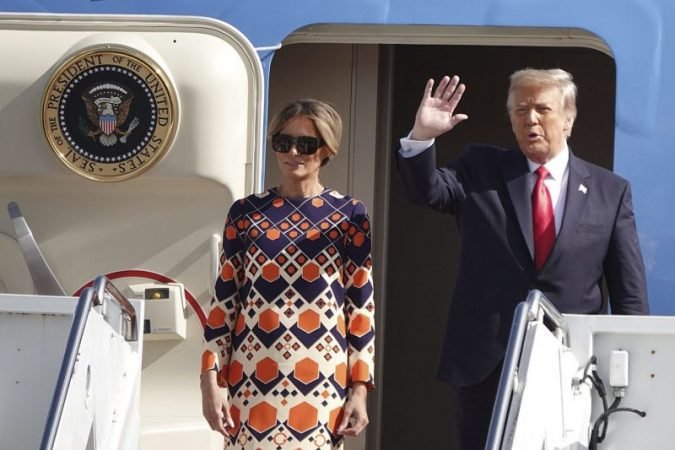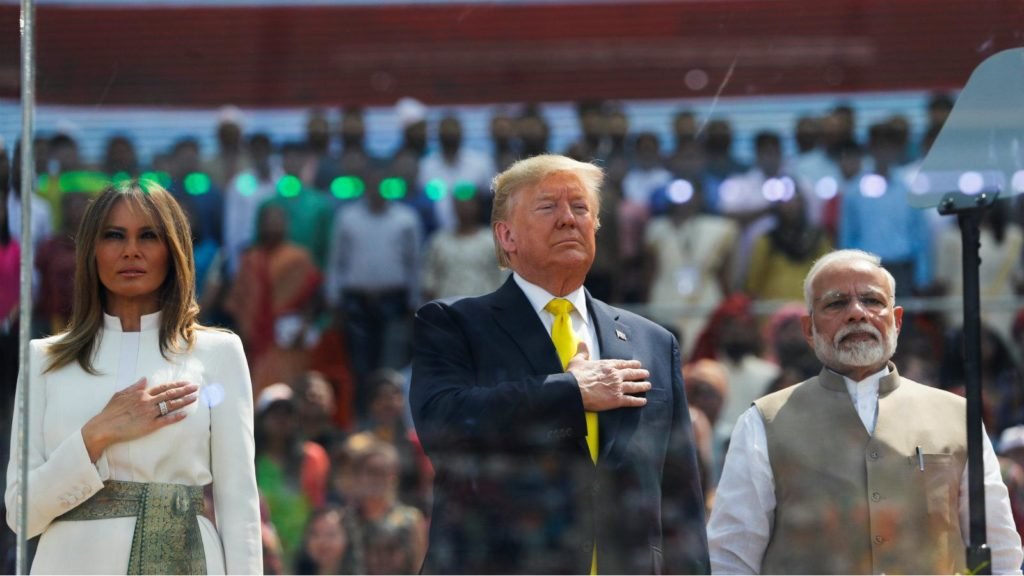Indo-US Relation Under Trump: A Retrospect

Donald Trump’s reign came to an end after the inauguration ceremony of Joe Biden, who has been elected as the 46th President of the United States of America. The administration under Trump could be characterized as tumultuous and chaotic, given the umpteen policies he has sanctioned and executed. The politics of the US under him saw a reverse in conducting dialogue; for he swore to make ‘America’ great again. However, the ultimate stunt pulled swiftly by his followers at the beginning of the year as they sieged the US Capitol exemplifies the demeanour he portrayed as the 45th US President. The United States of America has always been the torchbearer of democracy and liberty, it had and continues to amplify the democratic model with girt and strength to the nations of the world. But the democratic model under Trump was different and he presented somewhat a strange and outright system where diplomacy stood straightforward and strong. He envisaged a dream for America and Americans as he substantiated them with the policies he pledged to implement. From sideling the Chinese to sanctions on Iran and Venezuela, the world has witnessed the prowess withheld by him.

But to augment the narrative from an Indian perspective, the Trump Administration had dived and blended well with the Indian diaspora. Probably in the history of Indo-US, the cordial relation has ever come to such an interlock. The trend of following one particular leader religiously was visible to both Indian and American spectators. An interesting article published in ‘The Wire’ mentions that the personalities displayed by Indian Prime Minister Narendra Modi and former President Donald Trump are that they are ‘alpha males’. To quote the article, “Both treat their political opponents as enemies of the state and attack them using all the agencies of government. Both promote ethnic-nationalism, one, of the White-supremacist kind, the other of the majoritarian Hindutva brand. Both target minorities and immigrants for the ills of their country. Both play on the fears of the majority that they would be overtaken by minorities and migrants. Both rely on lies and misrepresentation of facts or ignore them if they are inconvenient.”
Donald Trump and the Prime Minister have shared more than just similar personality traits. Putting it from the standpoint of diplomacy and foreign policy, India bloomed under Trump. The diaspora on both ends witnessed the fervour ‘Namaste Trump’ and ‘Howdy Modi’ which highlighted the aggrandizement of Indo-US relationship for the first time in history. Even looking up close from policy execution and implementation, Washington had never failed to back New Delhi in the past few years. The Quadrilateral Security Dialogue (Quad) comprising of United States, India, Japan and Australia resumed operation post negotiations in January 2017. The quad has helped India stabilize and induce new defence strategies as well extend the horizon of defence drills with these leading giants. In September 2018, US and India concluded the 2+2 Dialogue under the leadership of former Minister of External Affairs Sushma Swaraj and the United States Secretary of State Mike Pompeo. The dialogue summarized the strategic alliance of India and the US to further “elevate” the untapped bilateral relationship between the two countries.

The Modi government had left no stones unturned after resuming its 2nd term in the Parliament, moving inch by inch closer to the actualization of its propaganda. The abrogation of Article 370 of the Indian Constitution which stripped the former state of Jammu and Kashmir of its special status, put all the limelight on Indian politics. Even amidst the criticism that was lashed out on the Indian government, Trump supported the cause and highlighted the importance of the abrogation as a necessary step to curb insurgency and defeat extremist militants in the state. The US’s response to the abrogation stood quite in contrast to the United Kingdom’s parliamentary consensus. However, both the US and the UK pushed for the human rights situation in the valley, requesting the Indian government to take the agenda on a priority. The abrogation of Article 370 fuelled outcry and plight within and outside the Indian borders, but that did not stop Prime Minister Narendra Modi to stage the biggest welcome a foreign leader has received. In September 2019, Donald Trump welcomed his counterpart at the NSG Stadium in Huston with over 50,000 Indian-Americans. Apart from these big events, Donald Trump’s administration never failed for once to extend support to Indian cause in the G20 summit, ASEAN Defence Ministers meet and the other ministerial dialogues following that year.
Just a month before the pandemic, Trump’s visit to India in February 2020 under the banner of ‘Namaste Trump’ added another milestone to the Indo-US relation. The highlight of the visit was his flawless performance and that he maintained a ‘lowkey’ profile during the visit. A major trade deal amounting $3 billion was promised by the US which would uplift India’s trade exports-imports globally. A report published by the Business Standard states that the economies of Brazil, New Zealand and India boomed under the Trump. The efficacy of the equity markets was soaring with the Indian Sensex increasing nearly by 85% since his inauguration. However, the ‘Namaste Trump’ ended on a bitter-sweet note, as the Delhi riots sparked during his visit. Despite all that Trump’s vision for India remains to a country of “astounding progress, a miracle of democracy, [and] extraordinary diversity.” As the closest ally to the US, Trump extended a helping hand to resolve the border dispute between India and China which broke out in May last year. The growing menace along the Line of Actual Control (LAC) drew international attention and Trump felt the urge to mediate between its closest ally and enemy.
President Joe Biden’s victory has received a mixed response as the world witnessed The US Capitol crumble to chaos and menace. It is much awaited to see how the relation between US and India will unfold in the Biden era and will Trump’s successor be able to maintain such a warm and cordial relation with Prime Minister Modi. As Trump exited the White House mentioning it’s a not a long-term goodbye and Biden stating in his inaugural speech that it’s a day for democracy, India now has to notch up its game to match the new dream of the United States of America.


















